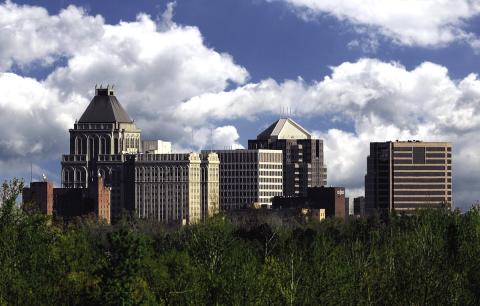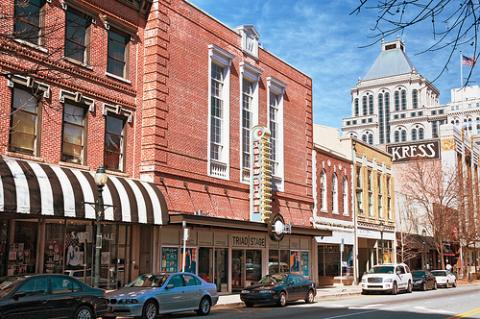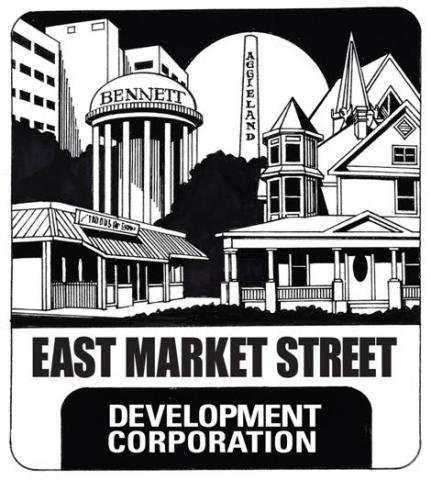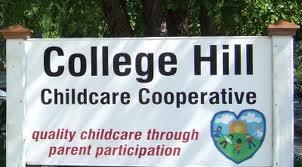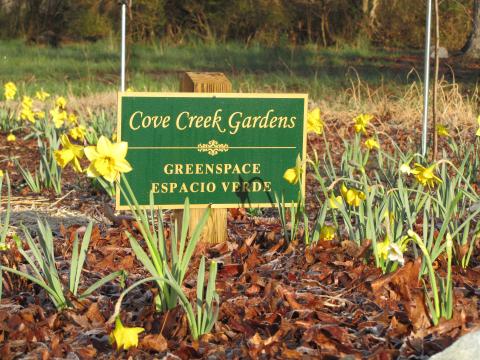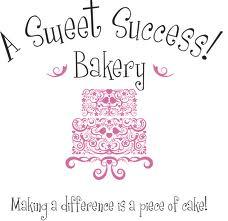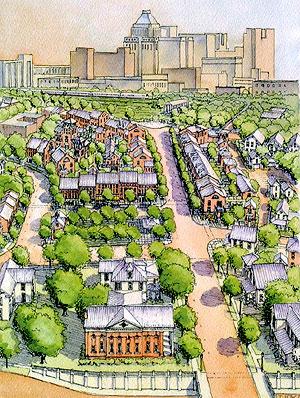Situated in central North Carolina, Greensboro is the state’s third largest city, with a population of more than 275,000 as of 2012. While many think the city is named for its greenery, it is actually named after General Nathanael Greene, a general who led American forces during the Revolutionary War. According to 2012 Ersi data, Greensboro is 49 percent white, 39 percent African American, 8 percent Latino, and 4 percent Asian. These numbers make Greensboro, for the first time, a “majority minority” city, an important milestone for a city with a storied civil rights movement past, including, famously, the lunch counter sit-in campaign to integrate restaurants and hotels, which began in 1960 at Woolworth’s department store in downtown Greensboro.
Greensboro today is a city of contrasts. The city boasts a vibrant downtown known for its art galleries, antique stores, parks, and public art displays. It is also home to five colleges and universities, a community college, and a law school—together employing 6,000 people and educating more than 47,000 students a year. While the city’s economy remains dominated by textile, furniture, and tobacco, it has become more diversified over the years with sizeable insurance, printing, publishing, nanotechnology, health care, transportation, and global logistics industries. As a result, Greensboro has experienced population growth over the past decade of roughly two percent a year.
Yet poverty has increased significantly. Between 2000 and 2009, the number of “middle class” households (i.e., those with incomes between $25,000 and $75,000) fell 28 percent. By contrast, the number of households with incomes of less than $15,000 a year increased by 30 percent. This growing poverty has had a disproportional effect on the city’s non-white populations—nearly a quarter of all African American and Hispanic families were considered poor in 2009 compared to just six percent of white families.
Greensboro and its residents, however, are not observing these trends from the backseat. Rather, they are actively creating and implementing innovative programs and strategies that capitalize on the city’s strengths to help address these challenges and foster a healthier, vibrant local economy. In fact, just last year, the city won a federal grant, which enabled it to kick off its Strong Cities, Strong Communities Challenge, which offers cash rewards to groups or individuals who develop the best plans to nurture the city’s economic growth. Similarly, at the community level, the Welfare Reform Liaison Project (WRLP), which provides workforce training and job placement services, recently initiated new programs in digital imagery/paper reduction and “green” hospitality to help more residents connect to the city’s growing green economy. Greensboro universities are also working in partnership with the community to help area residents rebuild wealth. For example, The North Carolina Entrepreneurship Center at the University of North Carolina Greensboro supports community members working to create and grow sustainable enterprises.
An overview of these and other community wealth building efforts follows:
